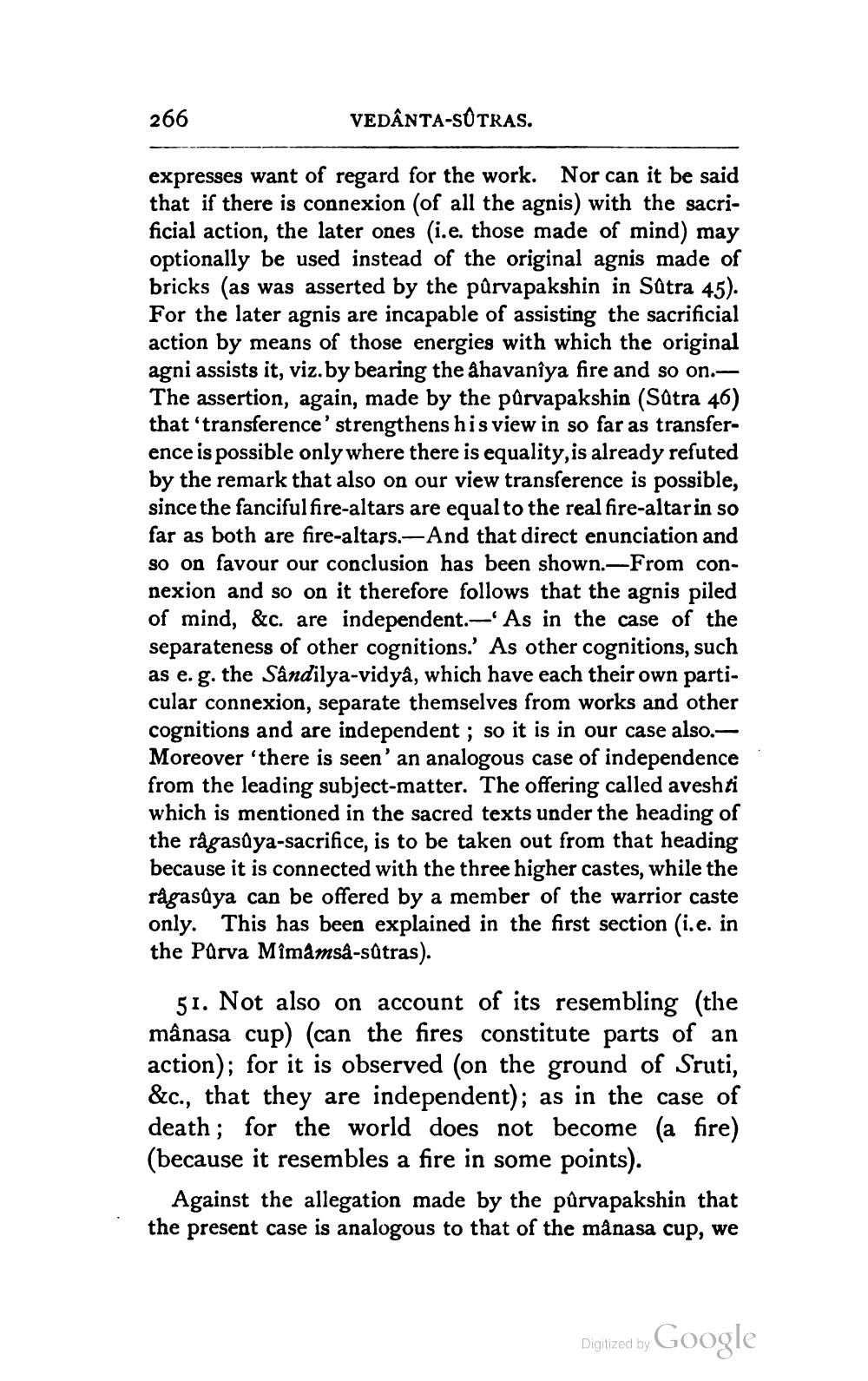________________
266
VEDÂNTA-SÚTRAS.
expresses want of regard for the work. Nor can it be said that if there is connexion (of all the agnis) with the sacrificial action, the later ones (i.e. those made of mind) may optionally be used instead of the original agnis made of bricks (as was asserted by the purvapakshin in Satra 45). For the later agnis are incapable of assisting the sacrificial action by means of those energies with which the original agni assists it, viz. by bearing the ahavaniya fire and so on.The assertion, again, made by the purvapakshin (Satra 46) that transference' strengthens his view in so far as transference is possible only where there is equality, is already refuted by the remark that also on our view transference is possible, since the fancifulfire-altars are equal to the real fire-altarin so far as both are fire-altars.—And that direct enunciation and so on favour our conclusion has been shown. From connexion and so on it therefore follows that the agnis piled of mind, &c. are independent.--As in the case of the separateness of other cognitions. As other cognitions, such as e. g. the Sândilya-vidyâ, which have each their own particular connexion, separate themselves from works and other cognitions and are independent ; so it is in our case also.Moreover 'there is seen' an analogous case of independence from the leading subject-matter. The offering called aveshti which is mentioned in the sacred texts under the heading of the râgasuya-sacrifice, is to be taken out from that heading because it is connected with the three higher castes, while the rågasaya can be offered by a member of the warrior caste only. This has been explained in the first section (i.e. in the Parva Mîmamså-sůtras).
51. Not also on account of its resembling (the mânasa cup) (can the fires constitute parts of an action); for it is observed (on the ground of Sruti, &c., that they are independent); as in the case of death; for the world does not become (a fire) (because it resembles a fire in some points).
Against the allegation made by the pûrvapakshin that the present case is analogous to that of the mânasa cup, we
Digitized by
Digitized by Google




